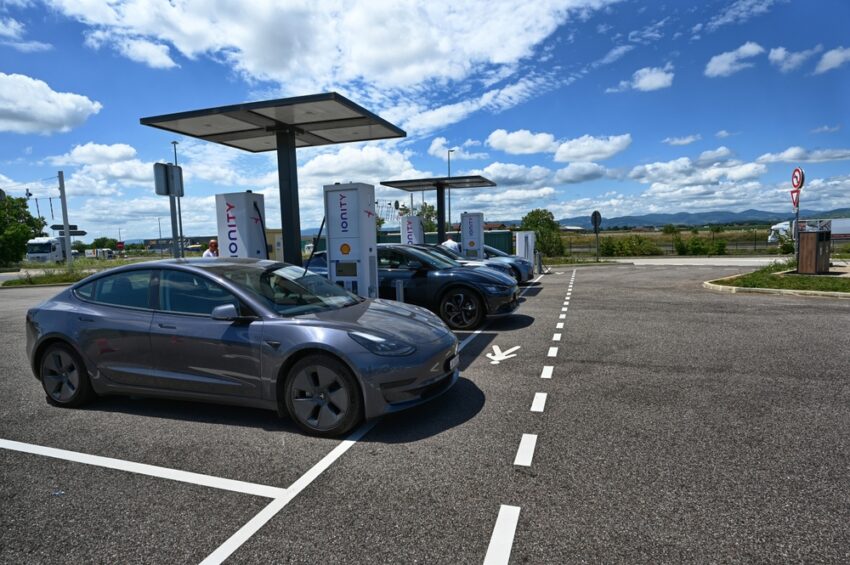EV charging in Europe and the UK: where is cheapest to charge?
The cost of charging an electric car in public remains one of the biggest talking points for EV owners, especially when planning longer journeys.
Charging away from home can be far more expensive and in the midst of the summer holidays many EV drivers travelling abroad will have no choice but to rely on public networks.
I recently spent a couple of weeks motoring around France in a Kia EV9 and was surprised by how cheap public charging was at a host of different providers. And that got me wondering, how do public charging costs around Europe compare with the UK?
So I did some digging and found out that, in simple terms, it’s bad news for us Brits.
In fact, the UK is the sixth most expensive country in Europe for public charging, at around 10p (12 cents) per kWh more than the European average. In an standard family EV like the 77kWh Volkswagen ID.3 Pro that means a 10-80% charge will cost an extra £5.30 compared with the continent-wide average and £16 more than the same charge in the cheapest country.
Using data from the European Commission’s Alternative Fuels Observatory, we’ve looked at the average public charging costs across the UK, EU member states, plus the EFTA states of Iceland, Liechtenstein and Norway. To keep things simple, we’ve used the ad hoc charging price at DC public chargers, supplied to the observatory by chargepoint operators and e-mobility service providers. That’s the price you pay if you don’t have any subscription or special deal with the chargepoint operator.
On average, across the 32 states, the price per kWh is 56 cents, meaning our example ID.3 will cost €30.18 (£25.74) for the typical 10-80% charge. In the UK, the average price is 68 cents, equating to a charge cost of €36.65 (£31.26).
While that puts the UK in the top 20% in terms of cost, British drivers are still better off than their counterparts in Austria, where the average price is 94 cents per kWh, making it the most expensive country in Europe for public charging. A driver there will pay a whopping €43.21 to charge our example VW.
That makes it substantially higher than in the next most expensive country, Germany, where the average price is 81c/kWh. Irish EV owners also get a tough time of it, paying an average 74c/kWh, just ahead of their Italian and Swiss brethren, who pay 70c and 69c respectively.
France, where I was pleasantly surprised by the lost cost, sits mid-table along with Poland and Latvia, with drivers paying 54c/kWh.
Perhaps unsurprisingly Norway, where EVs now account for 90% of all new car sales thanks to generous incentives, is among the cheapest countries to charge, too, with an average rate of just 40c/kWh.
However, EV drivers in Croatia face the lowest public charging costs, at just 33c/kWh, perhaps reflecting the Balkan state’s relatively meagre public infrastructure.
The relatively high price of charging is seen as a barrier to EV adoption. Campaigners including the SMMT, the AA and FairCharge have repeatedly called for a reduction in VAT on public charging to bring it in line with domestic energy tax. They argue that this will help drivers who rely on public charging, as well as make it more attractive for other motorists.
The SMMT has previously warned: “Britain’s net zero goals are dependent on everyone going electric but the current system actively discourages drivers without access to a home charger – such as those in housing with no off-street parking – from moving to an EV, by charging them four times more tax than homeowners with driveways.”
Despite these repeated calls, the previous government resisted, arguing it would harm public finances, and it’s unlikely that the new Labour government will take a different stance, leaving British drivers to continue facing some of the highest charging costs in Europe.
